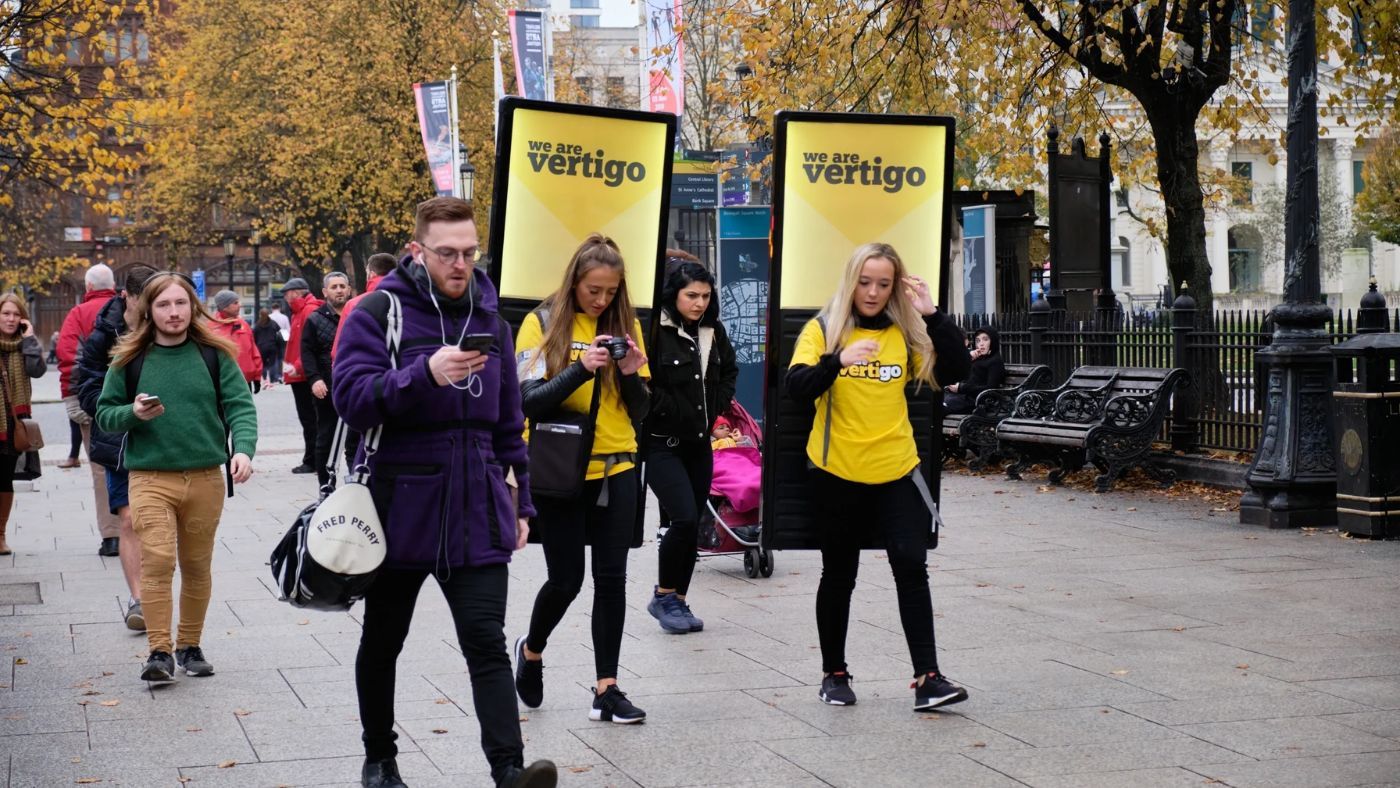Are you a small business owner, a blogger, or an affiliate marketer struggling to drive traffic to your website without breaking the bank? I get it – the struggle to boost your website traffic without burning a hole in your wallet is real. But guess what? You're not alone, and I've got some battle-tested tips to share. So grab a coffee, sit back, and let me sprinkle a bit of the journey on these strategies.
Traffic generation with a $0 budget!
Generate traffic for free with these ideas:
How to generate blog traffic! Content is King, but the SEO is the Magician!
Now, let's talk about content. I've been there, staring at a blank screen, wondering how to create something that resonates. But guess what? Share your expertise, answer those burning questions, and enjoy the traffic. High-quality and engaging content that resonates with your target audience will attract organic traffic and encourage repeated visits.

But to make it work, you also need to work on your SEO. It's a bit like planting seeds and waiting for a garden to bloom. You can optimize your website and content for relevant keywords to rank higher in search engine results pages (SERPs). This is a long-term SEO strategy, but it can bring consistent organic traffic for free.
Start by finding high-traffic and low-competition keywords, which you can do it via free tools or browser extensions. Then optimize your content with these keywords. Let's say you have a travel blog. Then you might want to look for keywords like 'budget travel tips' and 'offbeat destinations' to enrich your content with them.

SEO doesn't end there, though, as there are many technical aspects of it. Optimize your website for mobile, first of all, to ensure your website is easy to navigate on all devices. Then improve your page loading speed as faster websites lead to better user experience and higher search engine rankings. You may also want to utilize internal linking by linking your relevant blog posts and website pages together to keep visitors engaged and exploring your site. To enhance your SEO even further you can leverage link insertion services that help strategically place relevant links to improve search engine optimization, this, however, probably won't be free.
How to generate traffic on a website through social media!
You need to make social media your playground. Spread your wings across platforms like Facebook, Twitter, Instagram, Pinterest, and LinkedIn. Engage, share, and don't be afraid to join the party.
- Promote your products on social media and share your blog posts across different platforms while also encouraging your followers to share them. Additionally, consider investing in product video production to create engaging visual content that can further captivate your audience and boost your online presence.
- Also make sure not to overload your audience with hard promotions all the time, by applying the good ol' 4-1-1 rule.
- Be consistent and timely while posting. Set a nice image in your niche. Not to mention the high-quality content here also.
- And don't forget to use your hashtags as they will be your engagement and visibility booster.

One other thing is crucial: Check your industry benchmarks and best applications to see which platform and content type will suit you the best. Running a fitness center? Maybe start sharing quick workout reels on Instagram. Selling consumer electronics? Creating how-to videos on YouTube might be your thing. Freelancing as a designer? Try posting some of your artwork on Twitter. Starting an ecommerce website? Consider using platforms that offer advanced AI tools for virtual stores like Hostinger to build an online presence with ease. Always look around to see what others are doing, but don't be a copycat.
Networking and even offline channels may become your website traffic generator
Try to invest in your personal branding every now and then. Let people know about you and your company/products/services. This is again a long-term approach, but is also sustainable. You may do some of these online and offline activities for that.
- Network with other bloggers, influencers, and website owners in your niche to build relationships. Ask for guest posts on their websites and participate in online projects. This will help you reach a wider audience and build backlinks to your site.
- Get involved in online forums, communities, and Q&A websites related to your niche. Answer questions, offer valuable insights, and share your website link where relevant.
- Participate in relevant social media groups and communities. This will not only give you ready-made interested audiences but also help spark ideas by seeing what others do.
- Use social DMs every now and then. Have small talks with your existing contacts while also trying to build new ones. Tell them about your website and you'll never know what kind of collaboration opportunities may await you.
- Host your own Q&A sessions. Hosting live Q&A sessions on social media or your website will help you engage with your audience. This is a great way to build relationships and establish yourself as an expert.
- Create a free challenge or course. Provide valuable content for a limited time and boost your reputation. You can also ask for email addresses or social media shares in exchange.
- Be a guest speaker if possible. Share your expertise by speaking at industry events, conferences, or even online webinars. This is a great way to gain credibility and exposure while promoting your website to a targeted audience.
Generate traffic via emails!
You can either choose to go with cold emailing or build an email list. While the cold approach may get some results in the short term, your emails may also be flagged as spam, which may reduce your reach in the long run. Besides, you may also face legal issues with the local regulations on personal privacy.
Building a subscriber base, on the other hand, will allow you to nurture your subscribers with valuable content, exclusive offers, and updates about your website. This is a powerful way to drive repeat traffic and build loyalty. Finally, using a DKIM record checker can help ensure your emails are properly authenticated, improving deliverability and reducing the chances of being marked as spam.

How to generate traffic for Affiliate Marketing!
Becoming an affiliate for brands is usually considered as a side hustle but there are also people who make a living out of this. And as it has its own dynamics, it also needs to have its own tips as the following.
- Pick what you think you can sell and choose relevant affiliate programs. Partner with brands and companies that align with your niche and target audience (or maybe the ones that have audiences that you can align with).
- Content works here too. Write informative blog posts, reviews, and comparisons of the products you promote. If stuck, consider using AI for Google Docs that can offer some tips and suggestions to you. Create value around the affiliate products and give the potential customers reasons to buy them.
- Promote your affiliate links in different ways like sharing them on social media platforms, Q&A websites, forums, etc.
- Sending emails may also be your thing here, but remember, this time you will be speaking as yourself instead of a brand. So choose who and what to send wisely or your email account may be labeled as spammy too many times. Running a proper email warm up helps establish trust gradually, reducing the risk of your personal inbox being flagged early.

Free Traffic Generators (Avoid Them!)
There is always a dark side, and the reason why I'm mentioning them here is to tell you what not to do. These practices simply do more harm than good, so I recommend you stay away from them whenever you hear about them. When you stumble upon something too good to be true, always check twice!
- Black hat SEO tactics: These techniques can actually hurt your website's ranking in the long run, so it's best to stay away from them.
- Link farms and paid backlinks: Google penalizes websites that engage in such practices.
- Automated bots, free website traffic generators, and network traffic generators: These can result in fake traffic that won't benefit your website.
- Unrelated forum and community spamming: Posting irrelevant content in these places will only annoy users and damage your reputation.

Traffic vs. Lead Generation
While driving traffic to your website is important, it's equally crucial to convert those visitors into leads or customers. Here's how to bridge the gap:
- Offer valuable lead magnets. Provide free ebooks, checklists, or other resources in exchange for visitors' email addresses.
- Create strong calls to action (CTAs). Tell your visitors what you want them to do next. Use clear and compelling language in your CTAs, such as "Download your free guide now," "Sign up for our newsletter," or "Get started today." Speaking of language, consider leveraging website localization and translating your content into other languages to improve the user experience even further.
- Personalize your offers. Tailor your lead magnets and CTAs to different segments of your audience based on their interests and needs. This will make your offers more relevant and increase conversion rates. You can keep track of visitor's interactions using free website heatmap tools.
- Make it easy to convert. Ensure your website and landing pages are optimized for lead generation. This includes having clear forms that are easy to fill out, placing CTAs in prominent locations, and removing any potential roadblocks to conversion.
- Nurture your leads. Once you've captured leads' contact information, don't let them go cold. Develop a lead nurturing approach that provides valuable content, educational resources, and personalized offers over time. This will keep them engaged and move them further down the sales funnel. Consider using mentorship software to train all your employees on how to do this to achieve the best results.
- Track your results. Monitor the performance of your lead generation efforts and analyze the data to see what's working and what's not. This will help you refine your strategies and optimize your campaigns for maximum impact.

Low Budget Marketing Ideas
While free strategies are great, sometimes a small budget can go a long way. As I stated at the very beginning, nothing is really free anyway. So here are some low-budget marketing ideas to consider:
Low Budget Marketing Strategies:
- Paid ads are the easiest way to begin with. Platforms like Facebook, Instagram, and TikTok offer affordable advertising options to reach a targeted audience. You may also try Google Ads. But LinkedIn ads and Twitter ads are usually a bit more expensive.
- Automating your email marketing may also help you save time and effort while increasing your returns here. Invest in email marketing software to speed up your email sequences and send targeted campaigns. Also, setting up a BIMI record checker can make your emails more recognizable by recipients.
- Tools for content repurposing may also come in handy. You can turn your existing content into different formats like infographics, videos, or podcasts to reach a wider audience. A blog post may become a Twitter thread, or a whitepaper can be prepared out of a how-to video. Your creativity is your limit here.
- Collaborating with micro-influencers will likely bring in a high engagement at a low cost. Partner with small influencers in your niche who have engaged followings for more authentic and cost-effective promotion.
- Running contests and giveaways within the required legal frameworks will likely encourage user engagement and attract new visitors. Simply offer your niche exciting contests and giveaways, and watch them queue before your products.

Best Low Budget Marketing Campaigns
- Run a flash sale or offer a discount. Create a sense of urgency and encourage purchases with a limited-time offer. Though not sustainable, this is an easy and effective approach. Especially try to utilize special times of the year like Black Friday.
- Give free trials for your products or services if possible. Let your audience taste what you have to offer. They may get used to it and you will be creating a need that was not there before.
- Launch a referral program. Explore effective referral program examples to enhance your marketing strategy. Encourage existing customers to refer their friends and family by offering them incentives. Something like "Bring in your friend and you'll both get x% discount", you know.
- Check the ad libraries of Google, Meta, LinkedIn, TikTok, and other platforms that have it. You may see what others do in terms of spending, returns, creatives, and targeting. This will inspire you to find your own best practices.
Low Budget Guerilla Marketing
Guerilla marketing involves unconventional and creative marketing tactics to grab attention and generate buzz. Here are some ideas:
- Organize a pop-up event. Set up a temporary shop or booth in a high-traffic area to showcase your products or services.
- Create a street art piece or stunt. Get creative with a unique display or performance that will be shared online and generate media attention.
- Partner with local businesses in your area for cross-promotion and joint events. This will help you benefit from their own existing networks and customer base.
- Use clever packaging or product design if possible. If your product stands out with unique packaging or design, it may spark conversation and social sharing.
- Leave a trail of clues or hidden messages. Create a mystery or scavenger hunt around your brand to pique people's curiosity and engagement.

Understanding the Marketing Budgets
Knowing the average budgets different businesses allocate to marketing can help you benchmark your own strategy and optimize your spending.
Average Marketing Budget for Small Business
According to Sprout Social, the average small business allocates around 7-8% of its revenue to marketing. Of course, this can vary depending on the industry, growth stage, and marketing goals.

Startup Marketing Budget
Research by Gartner found that startups typically dedicate a higher percentage of their budget to marketing, often in the range of around 11%. This is due to the need to acquire customers and build brand awareness in the early stages of growth.
B2B Marketing Budget
We learn from an article on BDC that B2B companies generally spend more on marketing than B2C companies, with budgets typically ranging from 6-12% of revenue. This is because B2B sales cycles are longer and require more complex marketing strategies. Hence investment in a B2B platform with customization options can help businesses help in the sales process and improve their conversions.
Digital Marketing Budget
A significant portion of most marketing budgets is now allocated to digital marketing channels, again, according to Gartner. The average spend on digital is over 45%! This includes tactics like SEO, social media advertising, and email marketing altogether. With the world going completely digital and companies following the latest digital transformation framework, it would be impossible to ignore this aspect of marketing. Some businesses even prefer to spend the majority of their budget on link building services to boost their rankings and attract as much traffic as possible.
Content Marketing Budget
Content marketing is a core component of many marketing strategies. And Content Marketing Institute has found that the budgets typically range from 15-30% of the marketing budget of the overall marketing budget.
Social Media Marketing Budget
Social media marketing is another essential aspect of digital marketing. Deloitte's CMO Survey tells us that the budgets typically range around 15% of the overall marketing budget. This includes paid advertising spend and the cost of managing social media accounts.
Understanding the Giants: Barbie Marketing Budget
As an example, Warner Bros., the company behind the iconic Barbie movie, reportedly spent around $150 million on marketing for the movie. And the movie grossed $155 million in the US, and $337 million globally, only within its opening weekend.
From highest to lowest, all marketing budgets have something in common: Circleboom fits them all.
Circleboom Fits All Marketing Budgets!
From freelancers to start-ups, agencies to NGOs, and small businesses to corporations, Circleboom has a solution for pretty much every social media professional.
- With 0$ marketing budget, you can subscribe to the free tier of Circleboom Twitter to check your Twitter shadowban status, and take advantage of the 14-day free trial of Circleboom publish.
- Trial and error is the name of the game for start-ups. So at some point, you may need to clean up your Twitter history to start over. With the Limited Plan of Circleboom Twitter, you can delete your old tweets, retweets, and likes in bulk for only a few bucks a month.
- If you are a content creator, freelancer, blogger, or micro-influencer focused mainly on Twitter, you'll love the smart search and follower analytics features of Circleboom Twitter, helping you grow your follower base.
- Twitter is also useful for small businesses, as well as other social media platforms. So if you are a small business having active accounts and company pages on all or any of Facebook, Instagram, Twitter, LinkedIn, and Pinterest, this one dashboard of Circleboom Publish letting you manage all of them simultaneously will help you a lot.
- Own a cafe? A restaurant? A gym? A local shop? Any business that needs to have a decent Google Business Profile for local SEO? Good thing that you can also manage your Google Business Profile with Circleboom Publish.
- Do you know what else small businesses can benefit from? The bundle offer of Circleboom where you get great discounts if you purchase two tools together!
- Running multiple accounts on multiple platforms, like an agency or a corporation with multiple brands? Circleboom's enterprise tier, with which you can manage dozens of accounts all in one place, is here for you.
- Finding influencers, allowing you to tailor your Twitter ad targeting, and having a sneak peek into the competition will also save you time and effort during your marketing activities other than social media management. Yes, you can do all these with Circleboom Twitter.
- On top of all, benefitting from features like the hashtag generator, the AI-powered content creator, the RSS feed poster, the article curator, and ready-made post templates can be counted among the dreams of every social media professional.
No matter the size of your business, Circleboom will always have your back with its multifunctional and quite affordable tools to add value to your business.
Bonus: LinkedIn Ads to Google Sheets
While LinkedIn Ads can be a great way to target professionals, it can be more expensive than other platforms. Keep that in mind when setting your budget. If you're looking for ways to track and analyze your performance, you can export your data from LinkedIn ads to Google Sheets. This can help you see how your campaigns are performing and make adjustments as needed.
After: Paid ads are the easiest way to begin with. Platforms like Facebook, Instagram, and TikTok offer affordable advertising options to reach a targeted audience. You may also try Google Ads. But LinkedIn ads and Twitter ads are usually a bit more expensive.
Conclusion
Generating traffic and building a successful online presence is possible without a hefty budget. By implementing the strategies and tactics discussed in this guide, you can attract visitors, convert them into leads, and achieve your marketing goals. Remember, creativity, consistency, and dedication are key to success. And always keep in mind: Nothing is really free.








